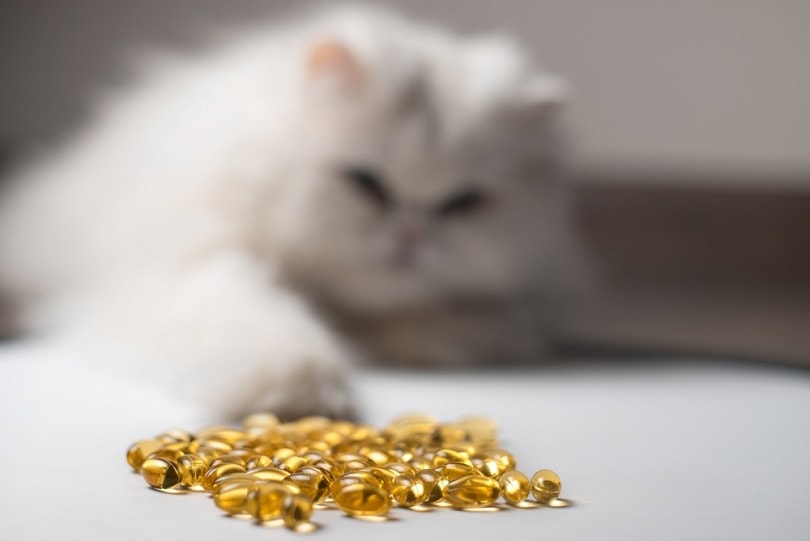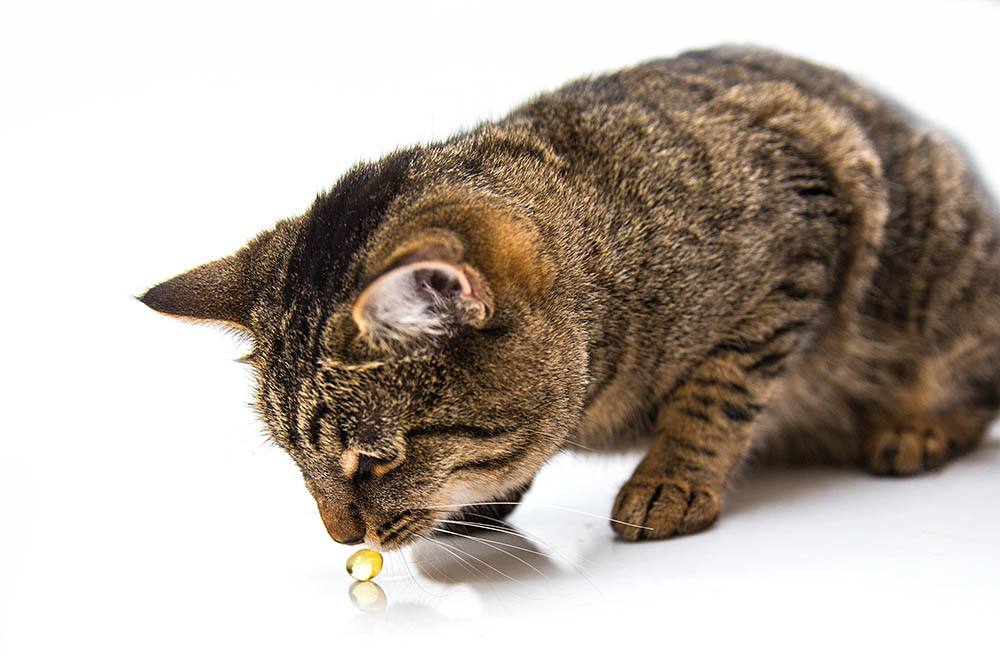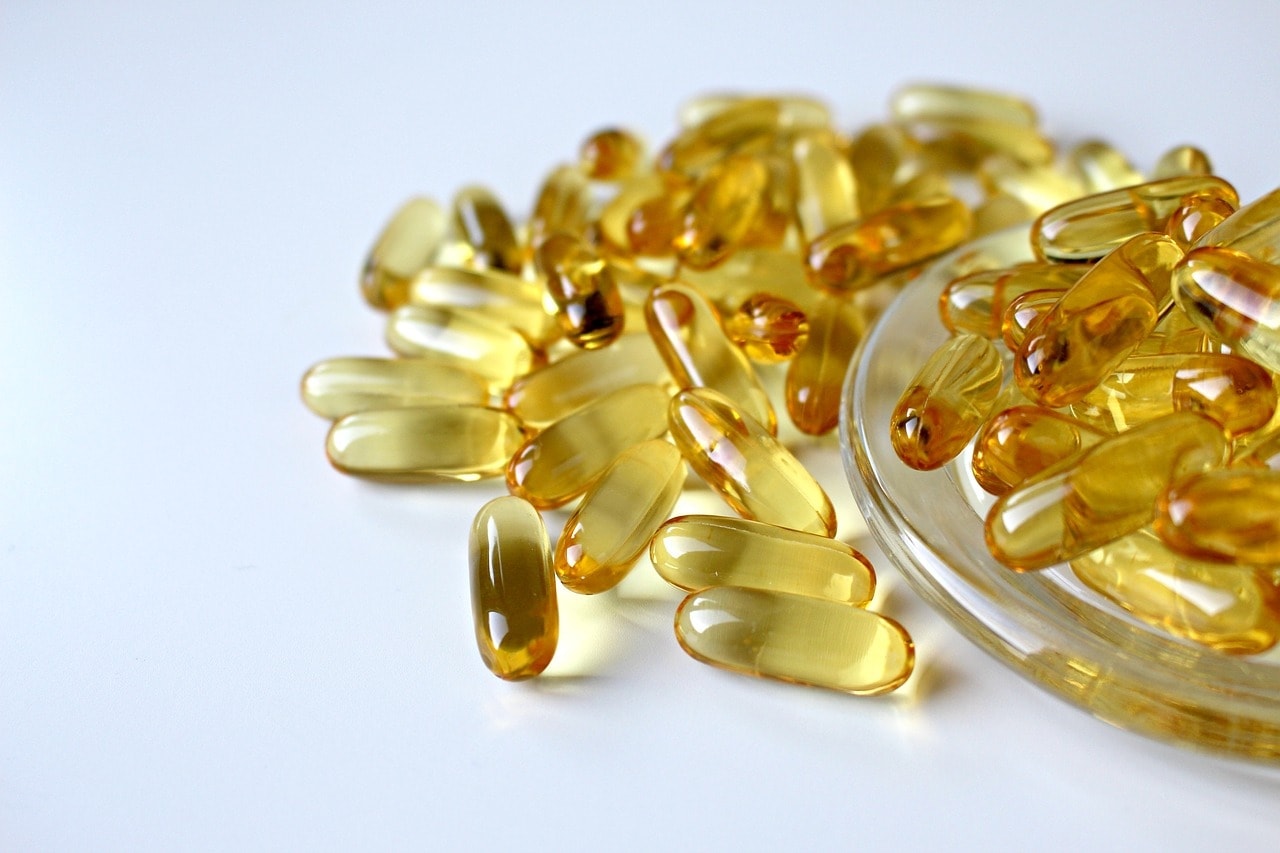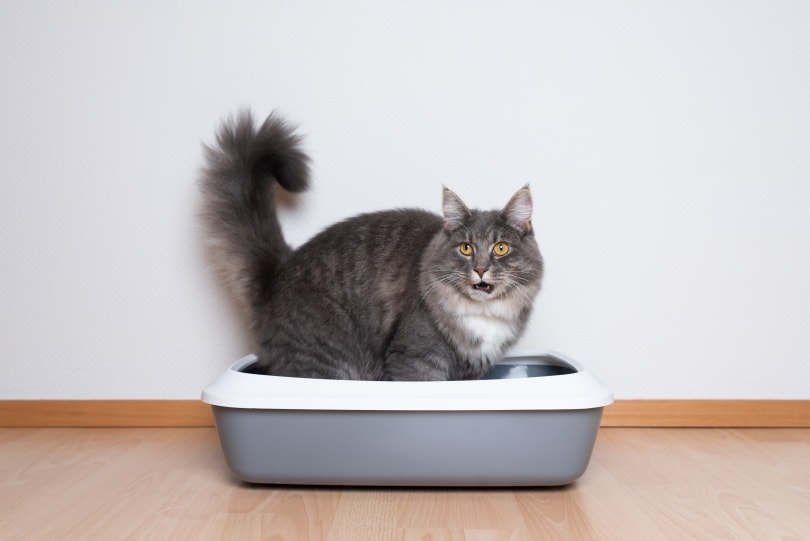4 Health Benefits of Fish Oil for Cats: Science-Based Facts & FAQ

Updated on

Fish oil is a popular supplement for humans and pets, thanks to its rich omega-3 fatty acids. These fatty acids can support good health all around, from immune support to anti-inflammatory properties to heart health.
Check out the top four health benefits of fish oil for cats to see if you should add this supplement to your cat’s diet.
What are Fish Oil Supplements?
Fish oil supplements are derived from fat or oil extracted from fish tissue, usually from oily fish like tuna, mackerel, anchovies, and herring. Fish oil is high in omega-3 fatty acids, which provide energy for the body and structure to cell membranes. Omega-3 fatty acids are essential, meaning that the body can’t produce them and must get them from diet.
Fish oil supplements are available in pill or liquid form and contain two types of omega-3 fatty acids:
- Docosahexaenoic acid (DHA)
- Eicosapentaenoic acid (EPA)
The 4 Benefits of Fish Oil for Cats
Supplementing fish oil in your cat’s diet has several health benefits:
1. Lower Inflammation
Fish oil supplements are touted for their anti-inflammatory properties, in both humans and animals. DHA and EPA work to reduce inflammation by sending cellular signals, making them helpful for managing arthritis, heart disease, and other inflammatory conditions. Fish oil also helps with skin allergies, which are triggered by an immune response.
2. Improved Cognitive Function
DHA is an important component in the brain and cognitive development in young animals, including kittens. In adults, DHA supplements can stave off age-related cognitive dysfunction, which is similar to dementia in people. Supplementing with fish oil may help your cat navigate age better and become less disoriented.

3. Slows the Progression of Kidney Disease
Cats are prone to conditions of the urinary tract and kidneys. This is especially true of once-feral cats with poor diets and exposure to toxins. Omega-3 fatty acids help cats reduce inflammation around the kidneys, lower blood pressure, and retain essential proteins to slow the progression of kidney disease.
4. Improved Heart Health
In addition to lowering inflammation, a considerable factor in heart disease, omega-3 fatty acids support heart health. Studies have shown that omega-3 fatty acids promote a regular heart rate and reduce the risk of atrial fibrillation, or a heart flutter. Fish oil has also been found to reduce triglyceride levels and inhibit clotting, preventing potentially fatal heart attacks and strokes.

 Side Effects of Fish Oil Supplements
Side Effects of Fish Oil Supplements
Fish oil supplements are generally safe and have no toxic ingredients for cats, but they can have side effects. The most common side effect is a fishy odor from the breath or skin, which is harmless but unpleasant. Other side effects may include gastrointestinal discomfort and oily, flaky skin.
If you’re concerned about the side effects of fish oil, consult with your veterinarian about whether the benefits outweigh the concerns for your pet.
Choosing a Fish Oil Supplement
Plenty of fish oil supplements are on the market, but they’re not created equal. If you’re shopping for fish oil, here’s what to look for:
- Extraction: The extraction process is important to quality fish oil. High temperatures can break down the omega-3 fatty acids in fish oil. Be sure to get cold-pressed fish oil to preserve vital nutrients.
- Fish source: Fish oils are usually made from oily fish like sardines and anchovies. Fish oil may be extracted from larger fish like salmon and cod, but they lack some of the EPA that your cat needs. If possible, choose a product that comes from mackerel, sardines, and anchovies to get the richest dose of DHA and EPA.
- Distillation: Fish oils should be distilled, but many aren’t. Undistilled fish oil may contain heavy metals and other toxins that can harm your pet. Choose fish oil supplements that are distilled for the purest and safest fish oil possible.
If you have any doubts, you can consult your veterinarian to choose the best fish oil supplement for your pet. Fish oil supplements also come in liquid and capsule form, so be sure to choose the option that you think will be most appetizing to your cat.
Final Thoughts
Fish oil is a relatively inexpensive way to give your cat vital nutrients to support heart, joint, brain, skin, and coat health. If you’re considering supplementing with fish oil, be sure to speak to your veterinarian to make sure that fish oil is a safe and appropriate addition to your pet’s diet.
See also:
- Can Cats Eat Anchovies? Vet-Reviewed Facts & FAQ
- Why Do Cats Like Fish? Everything You Need to Know!
Featured Image Credit: hppphnts, Shutterstock


 Side Effects of Fish Oil Supplements
Side Effects of Fish Oil Supplements








